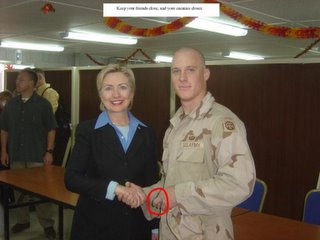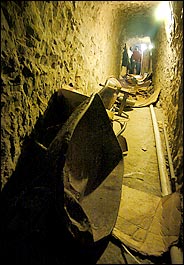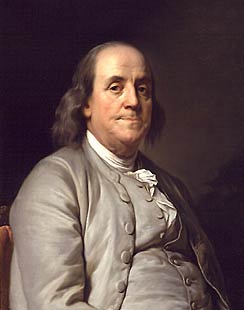
The Democrats and liberal MSM commentators are trying to characterize the recent NSA leaks as the acts of a mere whistleblower who is only attempting to expose wrongdoing. Nice try, but legally, there is a huge difference between a whistleblower and someone who is merely attempting to inflict political damage on a presidential administration by leaking to the press. Here's why.
The Nobleness of Leakers Is in The Eye of The BeholderLeaks are funny things and produce odd reactions in those who report on them. That seems to be especially true of national security leaks. Whether or not a commentator approves of a particular leak often depends on who benefits from, or is harmed by, the leak.
That's certainly true of the NSA leak controversy now under way. The liberal members of the MSM have taken to calling the NSA leakers heroes. I first heard that characterization from Jonathan Alter, who appeared on
Hugh Hewitt's show two weeks back. (Thanks,
Radioblogger.)
The "heroic leaker" spin now seems to be morphing into a "whistleblower" argument. For those who, like me, were not watching the Sunday political interview shows on New Year's Day, the inimitable and invaluable
Michelle Malkin reports that Chuck Schumer has taken up the cudgel for the whistleblower theory:
"There are differences between felons and whistleblowers, and we ought to wait
until the investigation occurs to decide what happened," Schumer sputtered as he
complained about Republican "distractions." The quote, of course, found its way
into a prominent place in the NYTimes and elsewhere.
If, unlike me, you are in the mood to listen to Schumer bloviate, you can link to the video
here. (It's a .wmv file.)
This "eye of the beholder" phenomenon is the reason why there was such hand-wringing and outrage among MSM pundits over the Valerie Plame leak. Instead of being a noble whistleblower leak, the argument goes, the Plame leak was merely intended to discredit Joe Wilson's "investigation" into whether Saddam Hussein sought to acquire yellowcake from Niger. Of course, it now appears that there was no real "leak" in the Plame matter; the special counsel who doggedly investigated the matter for over a year decided not to indict anyone for leaking. Regardless, the Plame non-leak was considered a "bad" leak, and the NSA leak is considered a "good" one.
Is A Leaker A Whistleblower?
I know something about whistleblowers, because dealing with such folk is part of my professional life. A leaker to the press is not a whistleblower, at least not in any legal sense-- and that's the sense that matters now, because
the Justice Department is investigating the NSA leaks.
Without getting into a great deal of legal mumbo-jumbo, here's the take-home message:
If a person working in the government with information about illegal activity wants to blow the whistle on such activity, there is an established process for doing so. That process does not include going to the press. (Michelle refers us to
Bluto, who also makes this point.) Every federal department, including the Justice Department, has an
Office of Inspector General, whose job it is to receive whistleblower complaints and act on them. Right on
this page is the button a real whistleblower pushes to report "violations of civil rights or civil liberties," which would include illegal wiretaps. Press that button and you see this language:
Section 1001 of the USA Patriot Act, signed into law by the President on
October 26, 2001, directs the Inspector General to review information and
receive complaints alleging abuses of civil rights and civil liberties by
Department of Justice employees. The OIG has created a special section in its
Investigations Division to process these complaints. This section will identify
the more serious civil rights and civil liberties allegations and assign them to
OIG employees for investigation. The OIG will refer other complaints to
Department components for their review and handling.
An instructive example, in another context, is the federal
False Claims Act. This Civil War-era law is designed to prevent profiteering off government contracts. If you work for a company providing goods or services to the federal government, and your company defrauded the government in some way, you can file a whistleblower lawsuit (called a "
qui tam" action) against your company and receive a large portion of what the government recovers from the wrongdoer. In some famous cases involving defense contractors and (more recently) health care providers accused of abusing the Medicare program, the whistleblowers have made millions of dollars.
In the recent past qui tam suits have resulted in around four billion dollars in recoveries for the United States Treasury, and the whistleblowers themselves have received more than one hundred million dollars.
Now, you may ask, what does a False Claims Act whistleblower recover if he or she goes to the press with the report of wrongdoing, rather than following the legally established process by involving the Health and Human Services Office of Inspector General or the Justice Department? The answer is zero, zilch, nada.
And So?Among other things, what this means is that whatever the NSA leakers' motives, in the Justice Department investigation they will not be considered whistleblowers, either by the Justice Department or any court that reviews the matter. Democrats and the MSM (but I repeat myself) may argue that the leakers' motives were noble, and that is certainly a debatable point, But the leakers are not legal whistleblowers, and any refusal by the Justice Department to consider them as such will be firmly grounded in the law.
UPDATE: Commenter Miguel Sanchez shares what he probably believes is a devastating statement by President Bush:
"Now, by the way, ANY TIME you hear the United States government talking
about wiretap, it requires -- a wiretap REQUIRES A COURT ORDER. Nothing has changed, by the way. When we're talking about chasing down terrorists, we're talking about GETTING A COURT ORDER before we do so."-George W. Bush, telling another noble lie, Buffalo, April 2004
My (updated) response:
Miguel: You forgot to include the words "emphasis added." ;-)
Are you aware that, as this Power Line post argues, FISA might not even apply to the NSA surveillance because one end of all the conversations involved was in another country? There's an awful lot we don't know about this situation. Apparently that does not stop you (and the rest of the blindly Bush-hating crowd) from concluding that you simply know. You know when Bush is lying. You know he violated the law. You know many, many, things, don't you? So I hesitate to share this Power Line post with you. It pretty much eviscerates your "knowledge." Come back when you have something substantive to say, based on facts and the law.




















